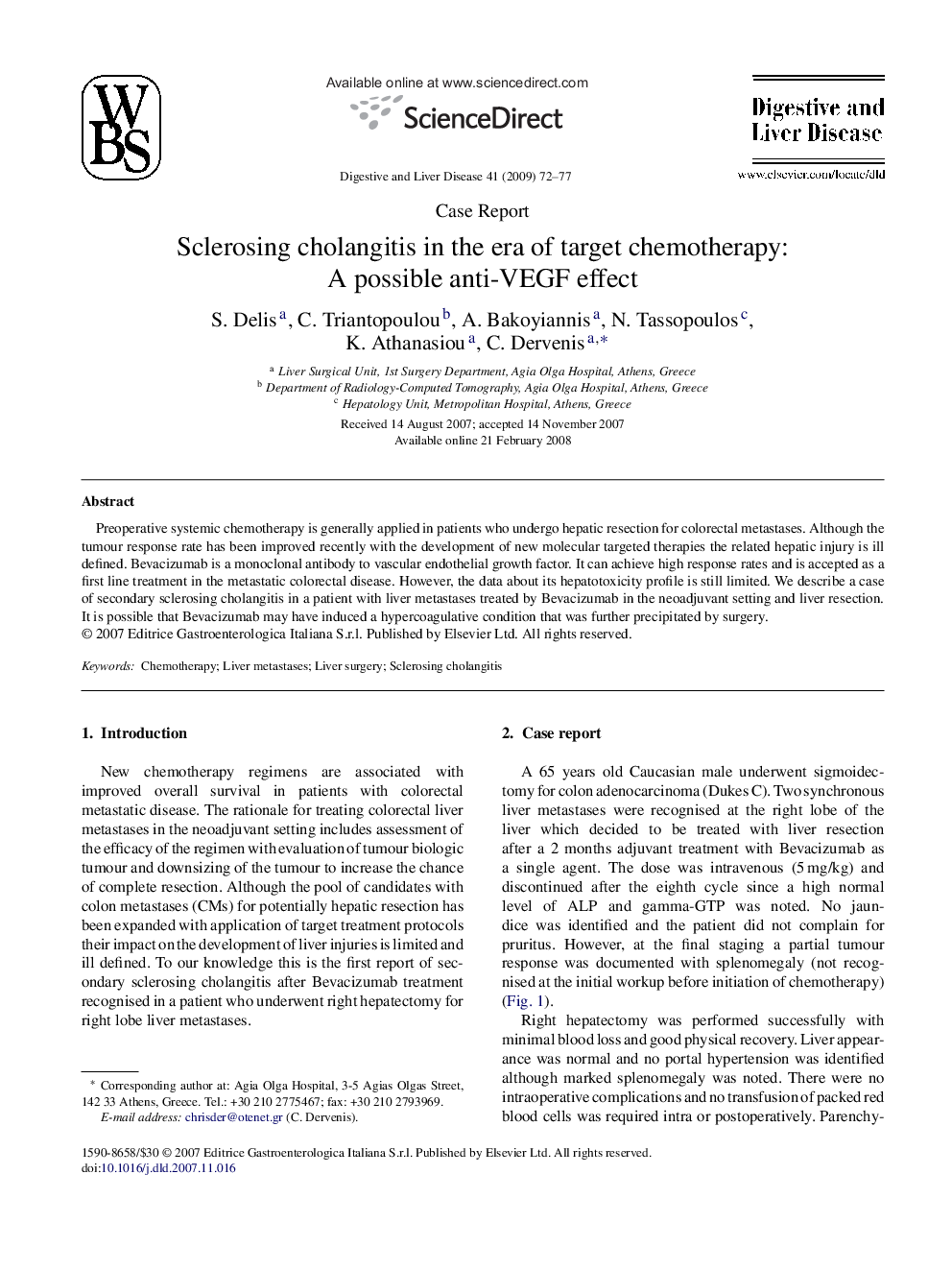| Article ID | Journal | Published Year | Pages | File Type |
|---|---|---|---|---|
| 3264586 | Digestive and Liver Disease | 2009 | 6 Pages |
Preoperative systemic chemotherapy is generally applied in patients who undergo hepatic resection for colorectal metastases. Although the tumour response rate has been improved recently with the development of new molecular targeted therapies the related hepatic injury is ill defined. Bevacizumab is a monoclonal antibody to vascular endothelial growth factor. It can achieve high response rates and is accepted as a first line treatment in the metastatic colorectal disease. However, the data about its hepatotoxicity profile is still limited. We describe a case of secondary sclerosing cholangitis in a patient with liver metastases treated by Bevacizumab in the neoadjuvant setting and liver resection. It is possible that Bevacizumab may have induced a hypercoagulative condition that was further precipitated by surgery.
